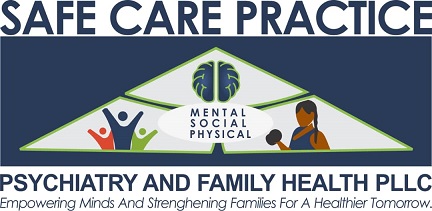10 Steps to Mental Wellbeing: A Comprehensive Guide to Enhance Your Mental Health
Importance of Sleep: Importance of Sleep: Quality sleep is essential for mental health, aiding in cognitive function, emotional regulation, and overall well-being.
Tips for Better Sleep: Establishing a consistent sleep schedule, creating a calming bedtime routine, and optimizing your sleep environment.
Understanding Your Stress: The impact of chronic stress on mental health and its physiological effects.
Effective Stress Management: Techniques such as mindfulness meditation, deep breathing exercises, and progressive muscle relaxation.
The Role of Relationships: Healthy connections contribute to emotional support, resilience, and a sense of belonging.
Building Strong Bonds: Nurturing positive relationships, setting boundaries, and fostering empathy and communication skills.
Physical Exercise and Mental Health: Benefits including stress reduction, mood enhancement, and improved sleep patterns.
Choosing Activities: Finding enjoyable forms of exercise suitable for your lifestyle and fitness level.
Nutrition and Mental Wellbeing: The impact of diet on mood, cognitive function, and overall mental health.
Eating for Mental Wellness: Incorporating whole foods, balancing macronutrients, and the role of hydration.
Cognitive Engagement: Activities that promote mental agility, creativity, and lifelong learning.
Examples of Stimulation: Reading, puzzles, learning new skills, and engaging in intellectually stimulating conversations.
Benefits of Gratitude and Mindfulness: Enhancing positive emotions, reducing stress, and fostering resilience.
Incorporating Practices: Gratitude journaling, mindfulness meditation, and staying present in daily activities.
Goal-Setting for Motivation: The role of goals in providing direction, purpose, and a sense of accomplishment.
SMART Goals: Strategies for setting Specific, Measurable, Achievable, Relevant, and Time-bound goals.
Routine and Stability: How structured routines can promote mental stability and reduce stress.
Creating a Balanced Routine: Incorporating self-care, work or study commitments, social interactions, and leisure activities.
Importance of Seeking Help: Removing stigma and recognizing when professional support is beneficial.
Types of Support: Overview of mental health professionals, therapy options, and community resources.
Conclusion Incorporating these ten steps into your daily life can significantly enhance your mental wellbeing and overall quality of life. By prioritizing sleep, managing stress effectively, nurturing relationships, staying physically active, maintaining a balanced diet, engaging in mental stimulation, practicing gratitude and mindfulness, setting realistic goals, establishing routines, and seeking professional help when necessary, you empower yourself to navigate life’s challenges with resilience and positivity.

